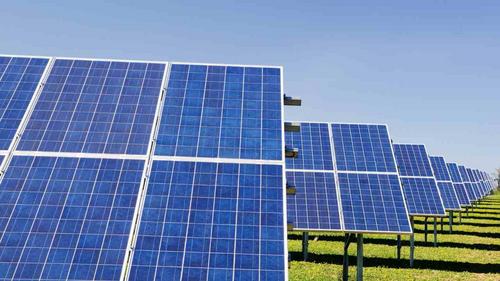News
Residents of Frankfort issue dire warning of drastic action in solar battle with Eskom

The Free State town of Frankfort finds itself in turmoil after a legal dispute with a state-owned power utility compelled its solar plant to discard much-needed electricity amid a severe energy crisis.
News24 reported that in response to the nation’s debilitating power cuts lasting up to 12 hours daily, the farming community of Frankfort began harnessing locally generated energy in February. However, Eskom, the beleaguered state monopoly, objected to this alternative power source and won a recent court case on a technicality, leaving locals in the dark during outages like the rest of the country.
The situation has sparked anger among the residents, particularly those like Hans Pretorius, a local cereal farmer who heavily relies on electricity to power his irrigation system. Pretorius warned, “If they are not going to allow us to use the solar… or to use our own electricity, we don’t have any choice, we will have to take the law into our own hands. It’s a matter of survival.”
This legal battle reflects the broader frustrations surrounding South Africa’s energy crisis, highlighting the challenges private businesses face in search of viable solutions. With Eskom’s coal-powered plants experiencing significant generation shortfalls, the country has endured record blackouts over the past year. These outages, which may worsen during winter, have devastating consequences for individuals and enterprises. For example, Gary Mbundire, a farm manager, lost 5,000 chickens in January due to a lack of ventilation. In addition, Thando Keswa was forced to shut down his takeaway business in Namahadi, a township in Frankfort, due to the high costs of running a generator.
Also read: Private producer prevented from reducing load shedding by Eskom
To mitigate the crisis, local businesses and individuals invested approximately R100 million to construct a solar farm, which builders completed in December. Operated by Rural Free State (RFS), a subsidiary of the private firm managing network distribution for the local municipality, the plant has a total capacity of 4.26 MW. This additional power supply enabled the distributor to implement its reduced blackout schedule.
However, Eskom prohibited the solar plant from pursuing this approach, leading RFS to pursue legal action. Eskom argued that RFS had not received authorisation to implement its blackout program, stating that Frankfort still relied on power from Eskom’s grid. According to Eskom, the town’s solar panels were insufficient to meet its energy demands, and its system lacked battery storage for excess power. Eskom contended that allowing Frankfort to deviate from its blackout schedule could set a precedent, potentially causing chaotic fluctuations in supply and demand that might compromise the national grid’s stability.
The court ultimately dismissed the case on a legal technicality, as the local municipality failed to join the suit, granting Eskom the upper hand. Consequently, RFS had to deactivate some of its photovoltaic panels to align with the scheduled outages, resulting in wasted electricity that is sorely needed.
The Democratic Alliance has accused Eskom of acting like a “village bully” in this case, prioritising the protection of its monopoly rather than embracing additional generation capacity. Since the court ruling, Frankfort residents launched an online petition urging the government to intervene and end the stalemate, which has garnered over 1,400 signatures.
Gugu Mokoena, the general manager of RFS, asked, “Why, with all the efforts that we are doing here, do we have to suffer the same as people who are not doing anything? Is that fair?”
Also read:
South Africa’s blackouts plunge solar-powered town into darkness
Picture: Unsplash / Zbynek Burival
Follow us on Google News.

















